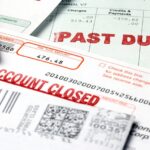Virginia’s new electricity bill subsidy program for customers of Dominion Energy Virginia has cleared its final hurdle at the State Corporation Commission and will begin enrolling participants in time for this coming winter. It is largely following the schedule previously outlined.
In a final order issued October 13, the Commission set the rate adjustment clause amount that will be added to Dominion customer bills at 73 cents per 1,000 kilowatt hours. For most residential customers it will add between 50 cents and a dollar per month to their bills.
Large users will pay the same rate per kwh for Rider PIPP and could see their bills rise hundreds or thousands of dollars per month. But grocery stores, big box retailers and manufacturers never pass along their electricity costs in higher prices, right?
The Percentage of Income Payment Plan, or PIPP, program starts with the assumption that 45,000 Dominion residential accounts will qualify for help and about $66 million in subsidies will be provided, averaging about $1,400 per year per account.
PIPP was first authorized by the General Assembly in the spring of 2020, so it has taken almost four years to get it running. It was part of the omnibus Virginia Clean Economy Act, with a similar bill subsidy also being offered to customers of Appalachian Power Company in the western reaches of the state.
Another major benefit for Dominion’s PIPP customers has apparently been ignored so far. The 2020 legislation also exempted them from paying any of the costs of Dominion’s $10 billion Coastal Virginia Offshore Wind project. Legally, they should not now be paying the separate rate adjustment clause (Rider OSW) that all the rest of us are now paying to build those 176 ocean turbines.
In fact, the exemption from paying for CVOW applies to every household eligible for PIPP, which is defined in the law as every household with income at or below 150 percent of the federal poverty line. That would be many, many more Dominion accounts than the 45,000 which it thinks will actually qualify for a PIPP subsidy. There is no PIPP subsidy unless your monthly bill exceeds 10 percent of your monthly income and many who qualify might not apply.
The CVOW exemption is tied to income, not the level of your monthly bill.
Disregarding the PIPP subsidy, it would still be worthwhile for all low-income households to assert an exemption from the CVOW Rider OSW. It is just under $5 per month at the current time, on that illustrative 1,000 kwh monthly bill, but over the next eight years will rise to $17 per month. That’s more than $200 per year. And that is based on the current estimated cost for just the first phase of CVOW, which many expect will prove more expensive.
The final stage of this initial process establishing PIPP was an exchange between the utility and the SCC staff, which quibbled with and was able to lower the utility’s first proposal. The SCC staff also outlined a series of items it wants to see reported each year as the utility seeks to adjust that annual PIPP fee (really a hidden tax) on monthly bills. They were so ordered by the Commission.
At some point the issue of the CVOW exemption will have to be addressed. Perhaps the legislators didn’t really mean it in 2020 and 2021 when they passed bills promising those low-income households that they would not have to pay for the construction costs and decades of profit on the wind farm.
And when the issue is pressed, the related transmission costs are probably something else the low-income consumers can avoid. Most of those new towers and lines will be built just to bring the energy in off the ocean.
If 100,000 or 200,000 or even more residential accounts are suddenly exempt from any and all CVOW costs over the next 20 or 30 years, what does that do to the monthly charge for those who still have to pay? Despite all the polling that shows the obvious, that inflation and the cost of living are the top concern of most voters, Virginia’s coming energy cost increases are not an issue anybody is raising. Questions not asked are seldom answered.


Leave a Reply
You must be logged in to post a comment.